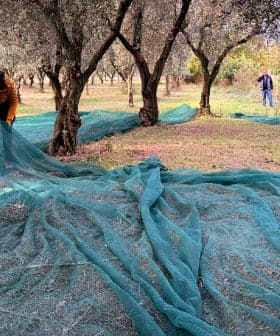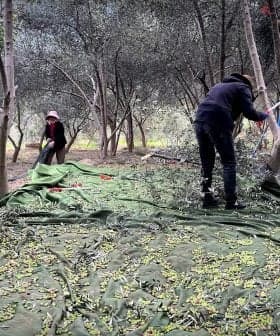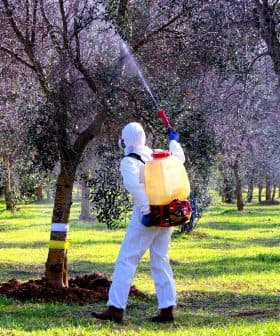New Process Increases Sustainability, Phenolic Profile of Olive Leaf Extracts

Researchers at the University of Barcelona have developed a new method using Natural Deep Eutectic Solvents to extract polyphenols from olive leaves, which could impact olive oil production and other industries. The environmentally friendly extraction process is being tested in the lab with plans to scale up to an industrial level, potentially revolutionizing how the olive oil industry handles waste.
Researchers at the University of Barcelona have discovered a new environmentally friendly method for extracting polyphenols from olive leaves.
In a study recently published in Food Chemistry, the scientists detailed a novel extraction method using Natural Deep Eutectic Solvents (NaDES).
The goal of our research team is to promote sustainability within the olive oil industry by integrating olive waste into the circular economy.
The extraction method is crucial because it influences the costs and feasibility of processing olive leaves on a large scale outside the laboratory.
Additionally, it affects the composition of the extracted substances and their potential applications.
See Also:Researchers Transform Olive Grove Waste Into BioplasticThe researchers created the NaDES from natural components, combining a glycerol-like liquid substance with choline chloride, a solid salt used in animal feed.
“When you combine these two substances, a new solvent is formed,” said Sónia Sentellas, a researcher in the university’s department of chemical engineering and analytical chemistry and co-author of the study.
“It is a natural substance that does not have toxic impacts on human health,” she told Olive Oil Times.
The first step in producing the extract is to crush the leaves into a fine powder.
“Next, we mix a specific proportion of this powder with the solvent at 80 ºC for two hours and wait for the extract to be produced,” Sentellas said.
“The entire process is similar to making tea,” she added. “The tea leaves are steeped in hot water, which acts as a solvent. After a while, you get colored water with some tea components, and then you separate the leaves from the liquid.”
The researchers found that using NaDES improved extraction efficiency while adhering to environmentally friendly practices.
The study identified several polyphenols in the olive leaf extracts, including hydroxytyrosol, luteolin and oleuropein.
These compounds, also found in extra virgin olive oil, are known for their antioxidant properties and ability to protect cardiovascular and brain health.
While researchers are still exploring potential applications, this extraction process could benefit olive oil production, food packaging and cosmetics.
Additionally, large-scale production of olive leaf extracts could significantly impact the disposal of olive leaves.
See Also:Olive Leaves Have Higher Levels of Phenols in the SummerUsing natural, environmentally friendly, non-toxic solvents broadens the application profile of the obtained substances.
“Some research is directed into understanding how such extracts could be added to olive oil to enhance its healthy profile and taste,” Sentellas said.
Away from olive oil, the researchers are investigating how the extracts might be used in other applications, including extending the shelf life of packaged food products and as an antimicrobial agent.
“Within our research team in Barcelona, we are also working on developing films,” Sentellas said. “Those are based on biodegradable materials and enriched with the polyphenol extract, which opens the opportunity of using these films to extend the shelf life of food and prevent bacterial growth.”
The research team focused on methods to maximize extract purification to broaden the scope of extract applications. Additionally, they are working on recycling the solvent used in the extraction process.
“Recycling the solvent is not only cost-effective and environmentally friendly, but it also makes the entire process more appealing to the industry,” Sentellas said.
Spain is the world’s largest olive oil producer. Significant biomass, including olive leaves, is created during the olive harvest and subsequent pruning. According to some estimates, high-density and super-high-density farms yield 30 tons of olive tree pruning biomass per hectare each year in Spain.
“The goal of our research team is to promote sustainability within the olive oil industry by integrating olive waste into the circular economy,” Sentellas said. “In this research, we aim to recover compounds to create a rich extract with health benefits, adding value to this residue.”
“This aligns with the principles of the circular economy, where waste is minimized and resources are efficiently reused,” she added. “Scaling up the extraction process to an industrial level could transform how the olive oil industry handles its waste.”
The process is currently being tested in a laboratory setting. “The next step is to prepare a pilot plant to see how our lab work can be scaled up to an industrial level,” Sentellas concluded.









